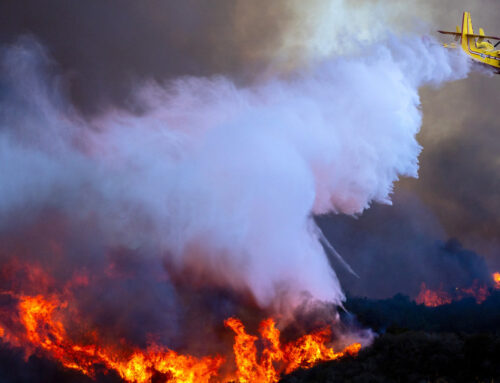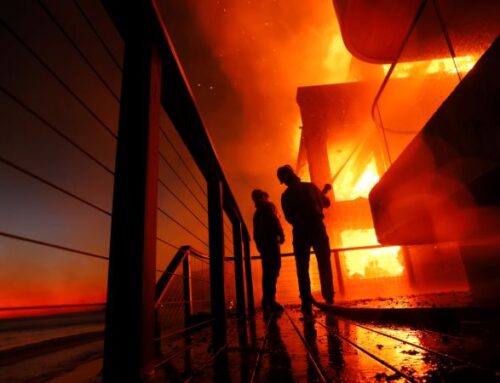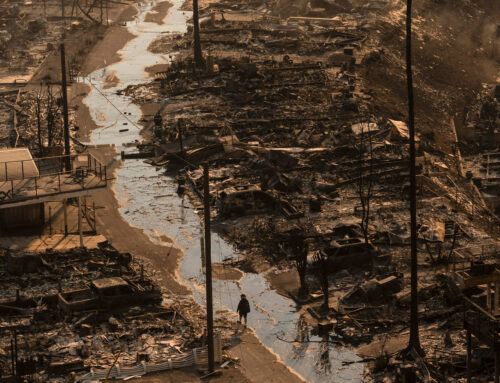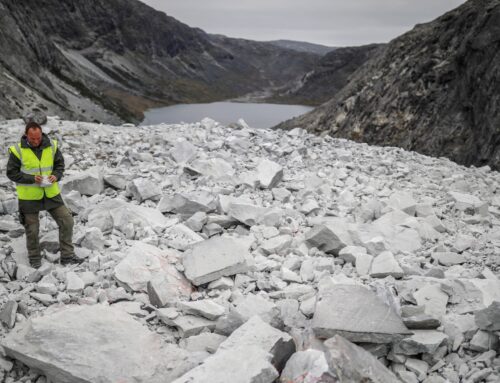Climate activists who target artworks ‘using Suffragette tactics’, says artist
January 14, 2025
Protesters who targeted paintings to raise awareness of the climate crisis were using an “effective” tactic also used by the Suffragettes, according to an artist whose new show focuses on recent attacks on high-profile artworks.
Alex Margo Arden, whose exhibition, Safety Curtain, opens this week at Auto Italia in east London, said the “symbolic damage” caused to the images, which were protected by glass, helped force a public conversation about the climate crisis.
“It’s undoubtedly effective for raising public awareness,” said Arden. “These images have embedded themselves in the collective awareness of the issue but that doesn’t necessarily equal public support.”
“I find it difficult to condemn the actions but when you have museums saying that the objects have been damaged in the process that is also concerning. But the symbolic damage tactic is very clever for them to be using.”
From 2022 to 2024, there were several high-profile attacks at galleries and museums including a Monet being daubed in red paint in Stockholm, another Monet being covered in mashed potato at Museum Barberini in Potsdam, and activists throwing tomato soup at Van Gogh’s Sunflowers in London’s National Gallery.
Just Stop Oil was behind the National Gallery incident, but Arden’s work looks at action by groups all over Europe, including Letzte Generation, Riposte Alimentaire, Ultima Generazione and Restore Wetlands.
To construct the images as oil on canvas paintings, Arden used what she calls “evidence recovery”. She takes stills from online images that record the actions from multiple angles, thenputs them together and uses that composite image for the basis of a painting that recreates the often food-based damage.

A trio of paintings in Safety Curtain captures the moments after a protester smeared the Mona Lisa with a pastry in Paris. “The first one is the impact of the activist,” she explained. “The second one is after the gallery staff have tried and wiped off the substance from the protective glass, and the third is after another person tries to remove the pastry.”
It is like a strange triptych that shows the unsuccessful attempts to erase the protest. “They want to downplay the spectacle as if it has never happened,” added Arden. “When the actions happen, the museum’s priority is to put the work back on display as soon as possible.”
Arden also includes The Toilet of Venus (also known as The Rokeby Venus) by Diego Velázquez, which was targeted by activists at the National Gallery in November 2023. They chose the work because it had been attacked by the Suffragette Mary Richardson in 1914. The work required a long restoration after she slashed it seven times.
“The strategy of targeting paintings in galleries was used by the Suffragettes and that definitely wasn’t symbolic,” she said. “They slashed 13 paintings in a Manchester art gallery with knives, totally destroying them. This is more like a symbolic destruction.”
This is Arden’s debut show (she is still studying at the Royal Academy) and comes in the same week Just Stop Oil activists defaced the grave of Charles Darwin, while wildfires continue to burn through Los Angeles.
“It’s important for everyone to be in agreement that climate change is an issue, especially now at the moment – it’s terrifying,” she said. “The paintings are a place for people to think from and they raise questions for people, but I don’t know what we do next.”
Safety Curtain opens on 16 January at Auto Italia in Bethnal Green and runs until 23 March 2025.
Search
RECENT PRESS RELEASES
Related Post




